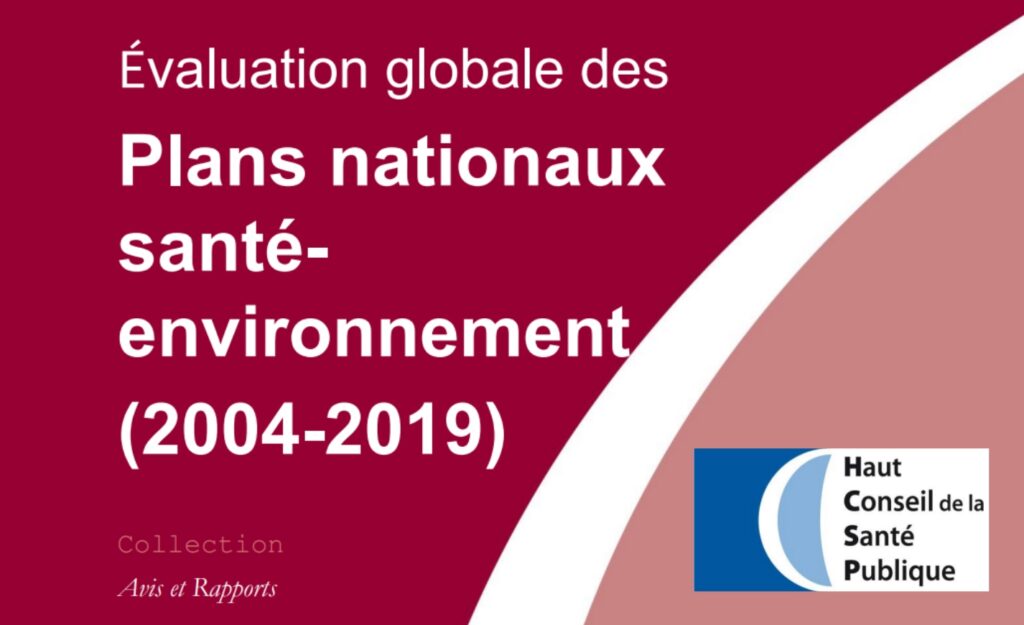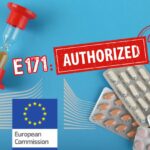
National Environmental Health Plans (PNSE): focus on nanos
The High Council for Public Health (HCSP) published its Global Assessment of the National Health and Environment Plans (2004-2019) on Monday, June 20. Dated March 2022, it traces the evolution of public policies in health and environment in France over the last fifteen years and issues general and specific recommendations. Those concerning the issue of manufactured nanomaterials – on which the HCSP consulted AVICENN in May 2021 – are presented below.
Contributions of the PNSE to the consideration of nanomaterials
The HCSP concludes that the PNSE 2 and 3 have, in a global way, highlighted the complex issue of nanomaterials, “poorly perceived by the public and insufficiently taken into account at the EU level in 2009, at the beginning of the PNSE 2, especially in the regulatory field”. However, it considers that “the role of the PNSEs to address this subject is not clearly identified. (…) the process was initiated during the Grenelle Environment Forum and the national debate on nanotechnologies. This allowed nanomaterials to become part of the PNSE 2″.
Recommendations of the HCSP concerning nanos
Governance around nanos in France
The HCSP relays the calls from civil society (including AVICENN) for “more transversality between ministries to gain in efficiency”. It points out situations of duplication between the actions carried out at the national level within the framework of r-nano and the actions carried out in the regions (within the framework of PRSE) and calls for “the creation of synergies and complements” between these two levels. The HCSP relays the remarks of AVICENN and other associations “wanting more information, awareness and communication, but also sanctions from the public authorities when breaches are observed” and more transversality from the ministries that tend to act individually “in silos”, at the central level as well as at the regional level (in the DREETS or in the DREALs): “Each administration conducts its own inspection in companies, without sharing information or coordinating actions. A “nanos task force” should be set up to centralize information and work, also at the regional level.
r-nano register
The HSCP confirms that “the r-nano register must be improved because it is poorly filled out by industry and difficult to use because its access is too restrictive. It should be opened up more widely and, in particular, to researchers working on the relationship between exposure and health effects in epidemiological studies“.
The HCSP is also in favor of increasing the resources dedicated to r-nano: “Anses has only one person to manage the R-Nano register, respond to requests from registrants, accompany them and produce the annual report, which is notoriously insufficient to steer and lead this action“.
EpiNano program
The HCSP also recommands overcoming the difficulties faced by the EpiNano epidemiology program monitoring the health of workers exposed to nanomaterials through “legal texts and a decree or a circular” to make the system mandatory (since the voluntary nature on which it is based has not allowed a sufficient number of companies and workers to be included).
Research on the risks associated with nanomaterials
The HCSP recommends supporting research aimed at better understanding the health impacts of exposure to nanomaterials.
It also asks that in the assessment of health risks of new technologies, the “balance between the risks and their socio-economic utility” be taken into account.
Finally, it would like to see a “safe(r) by design” approach that looks at all the risks and must be carried out before innovations are put on the market.
Public Information
Having been made aware by AVICENN of the weaknesses in the PNSE 4 concerning information and awareness on nanomaterials, the HCSP recommends to “improve public information on the presence of nanomaterials in consumer products through clear labeling (“composcore” according to the HCSP opinion of 08/27/2020 or “toxiscore”) and enforce strict compliance with regulations”.
It remains to be seen how these recommendations are taken into account in the implementation of the PNSE 4.

Upcoming Nano Agenda

- Scientific conference
- 23rd International conference on Advanced Nanomaterials
- From July 23 to July 25, 2025
- Website: www.advanced-nanomaterials-conference.com

- E-learning program: awareness-raising for personnel who come into contact with nanomaterials during research, formulation, production, maintenance, cleaning, upkeep, etc., as well as safety coordinators or engineers, facility managers, heads of laboratories where nanoparticles are handled.
- Organizers: INSTN Grenoble (CEA)
- On the program:
- 1 – Introduction, definition and characteristics of nanomaterials
- 2 – Toxicity of nanomaterials: the state of knowledge
- 3 – Metrology and characterization of nanomaterials
- 4 – Prevention and protection against nanomaterials in the workplace
- 5 – Quiz: assessment of learning outcomes
- The 2-hour course can be viewed for one month from the date of registration.
- Website: https://instn.cea.fr/…risques-lies-aux-nanomateriaux…

- E-learning program: awareness-raising for personnel who come into contact with nanomaterials during research, formulation, production, maintenance, cleaning, upkeep, etc., as well as safety coordinators or engineers, facility managers, heads of laboratories where nanoparticles are handled.
- Organizers: INSTN Grenoble (CEA)
- On the program:
- 1 – Introduction, definition and characteristics of nanomaterials
- 2 – Toxicity of nanomaterials: the state of knowledge
- 3 – Metrology and characterization of nanomaterials
- 4 – Prevention and protection against nanomaterials in the workplace
- 5 – Quiz: assessment of learning outcomes
- The 2-hour course can be viewed for one month from the date of registration.
- Website: https://instn.cea.fr/…risques-lies-aux-nanomateriaux…






